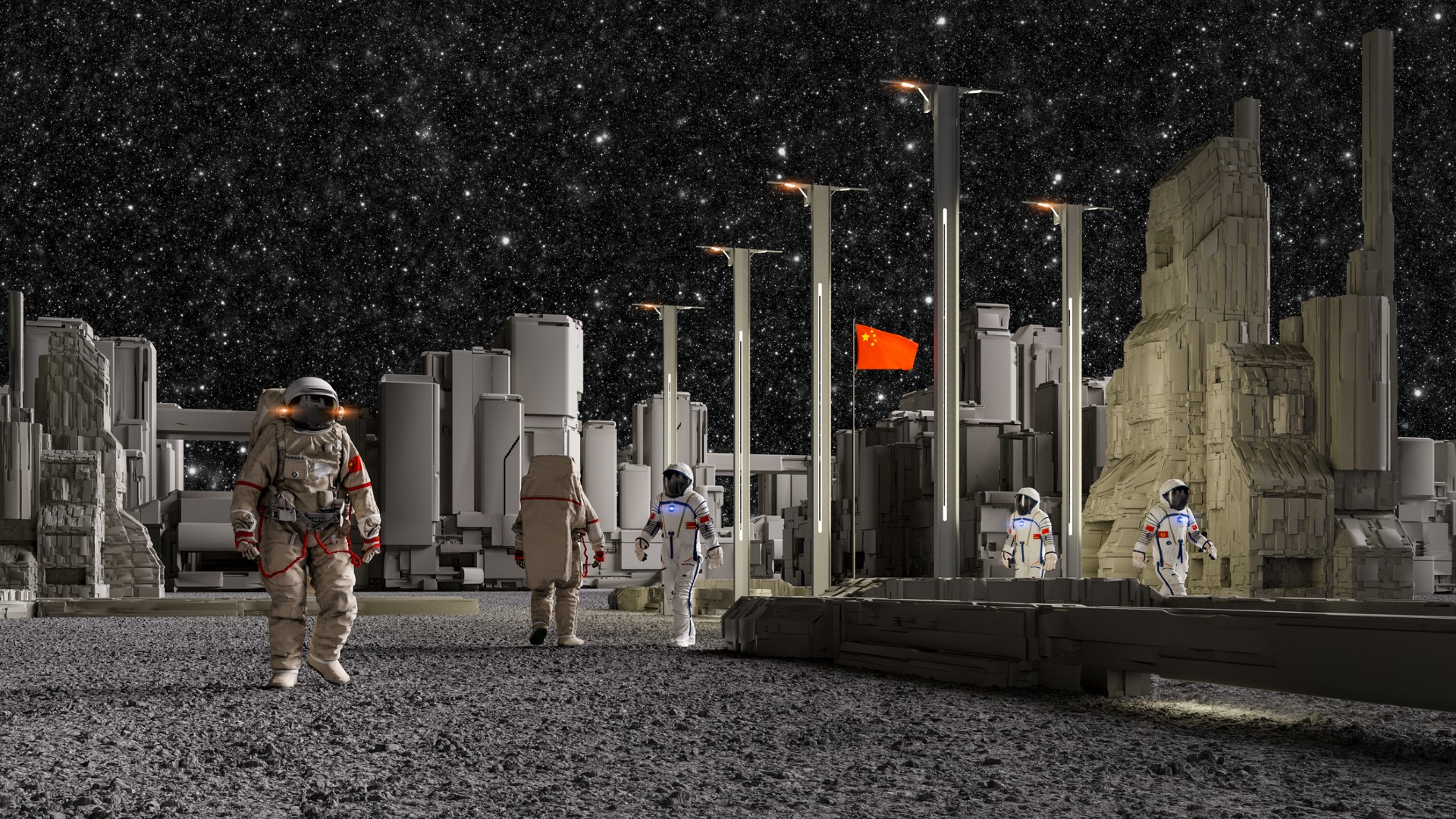China recruits Pakistan and Belarus for its planned moon base

Breaking space news, the latest updates on rocket launches, skywatching events and more!
You are now subscribed
Your newsletter sign-up was successful
Want to add more newsletters?

Delivered daily
Daily Newsletter
Breaking space news, the latest updates on rocket launches, skywatching events and more!

Once a month
Watch This Space
Sign up to our monthly entertainment newsletter to keep up with all our coverage of the latest sci-fi and space movies, tv shows, games and books.

Once a week
Night Sky This Week
Discover this week's must-see night sky events, moon phases, and stunning astrophotos. Sign up for our skywatching newsletter and explore the universe with us!

Twice a month
Strange New Words
Space.com's Sci-Fi Reader's Club. Read a sci-fi short story every month and join a virtual community of fellow science fiction fans!
Two more nations just signed on to help China build its moon base.
Pakistan and Belarus have come aboard the International Lunar Research Station (ILRS), a China-led project that will be constructed in the 2030s, if all goes according to plan.
Belarus announced its involvement on Monday (Oct. 23), while Pakistan's became known late last week.
Related: Not just Artemis: China and Russia plan to put boots on the moon, too
There are now seven nations in the ILRS coalition, according to SpaceNews: China, Russia, Belarus, Pakistan, Azerbaijan, Venezuela and South Africa.
The latter five countries aren't exactly space heavyweights, but technical contributions aren't the only criteria that China is interested in.
"Pakistan does not have its own launch capabilities — it depends on China for that — and Pakistan has only three active satellites on orbit, while China has over 800," Victoria Samson, Washington office director for the nonprofit Secure World Foundation, told SpaceNews in an email.
Breaking space news, the latest updates on rocket launches, skywatching events and more!
"So in terms of it contributing substantively to the ILRS, I'm not entirely certain it will have a lot of technical things to add," she added. "But there is something to be said for political support, and it is a statement endorsing China's moon plans if nothing else."
NASA is building a moon coalition of its own, via a set of agreements known as the Artemis Accords. The Accords lay out guidelines for responsible and peaceful lunar exploration, which the American space agency is undertaking via its Artemis program.
Twenty-nine nations have signed the Artemis Accords to date, including Australia, Brazil, Canada, France, Germany, India, Japan, South Korea and the United Kingdom.
One of the Artemis program's main goals is the construction of one or more bases near the moon's south pole, which is thought to be rich in water ice, by the end of the 2020s. The skills and lessons learned in doing so will help NASA get astronauts to Mars by the late 2030s or early 2040s, agency officials have said.

Michael Wall is a Senior Space Writer with Space.com and joined the team in 2010. He primarily covers exoplanets, spaceflight and military space, but has been known to dabble in the space art beat. His book about the search for alien life, "Out There," was published on Nov. 13, 2018. Before becoming a science writer, Michael worked as a herpetologist and wildlife biologist. He has a Ph.D. in evolutionary biology from the University of Sydney, Australia, a bachelor's degree from the University of Arizona, and a graduate certificate in science writing from the University of California, Santa Cruz. To find out what his latest project is, you can follow Michael on Twitter.
